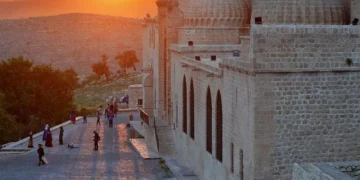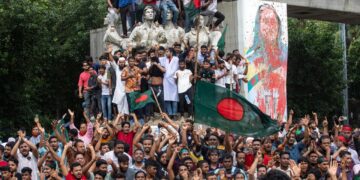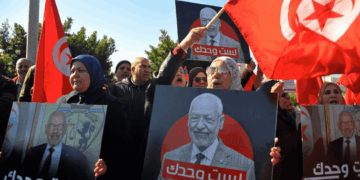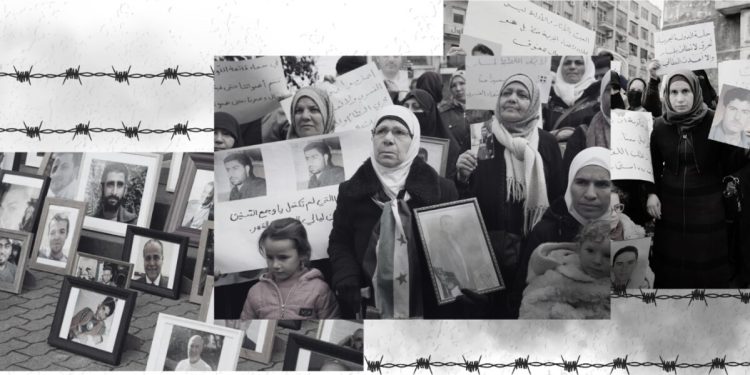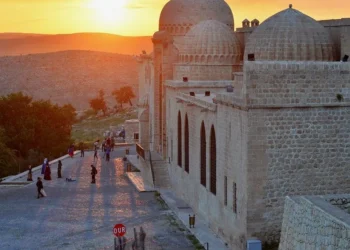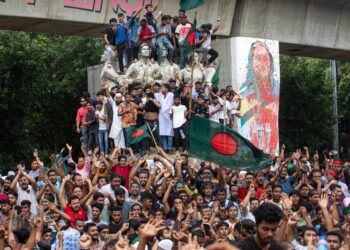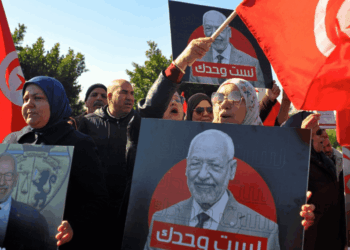Enforced disappearance in Syria has caused immense suffering, with over 112,000 victims documented since 2011. The Assad regime had utilised forced disappearances to suppress dissent and instill fear. Families endure ongoing psychological pain and exploitation while searching for loved ones, highlighting the urgent need for truth and justice.
For more than a decade, enforced disappearance has haunted Syrian society, representing a profound national trauma that few families have survived. It is not just detention in the traditional sense; it is the complete erasure of a person’s existence. For the victims, enforced disappearance is a journey into an unknown abyss, while their families suffer a painful state of loss, caught in a life suspended between hope and despair. Since the Syrian uprising began in March 2011, the Syrian Network for Human Rights[1] has documented at least 112,713 people who remain forcibly disappeared – a figure that, while truly staggering, likely underestimates the true extent of the crisis. This systematic crime against humanity has been a core strategy of the Assad regime, which is responsible for most of the cases. However, as the conflict fragmented, various non-state armed groups adopted this brutal practice, making disappearances rampant throughout the war. The fall of the Assad regime in December 2024 and the subsequent liberation of its notorious prisons marked a turning point, closing a chapter of state-sponsored terrorism and opening a more difficult phase in the search for truth and justice for Syria’s disappeared. Amnesty for perpetrators only. This mysterious loss carries a deep pain for families that cannot be resolved by simply pardoning or holding the perpetrator accountable. It requires tireless and painstaking work to uncover the truth. All the mothers, sisters, wives, and relatives of the deceased are waiting to know the whereabouts of their loved ones to find inner peace and comfort. This situation cannot be ignored as we seek justice.
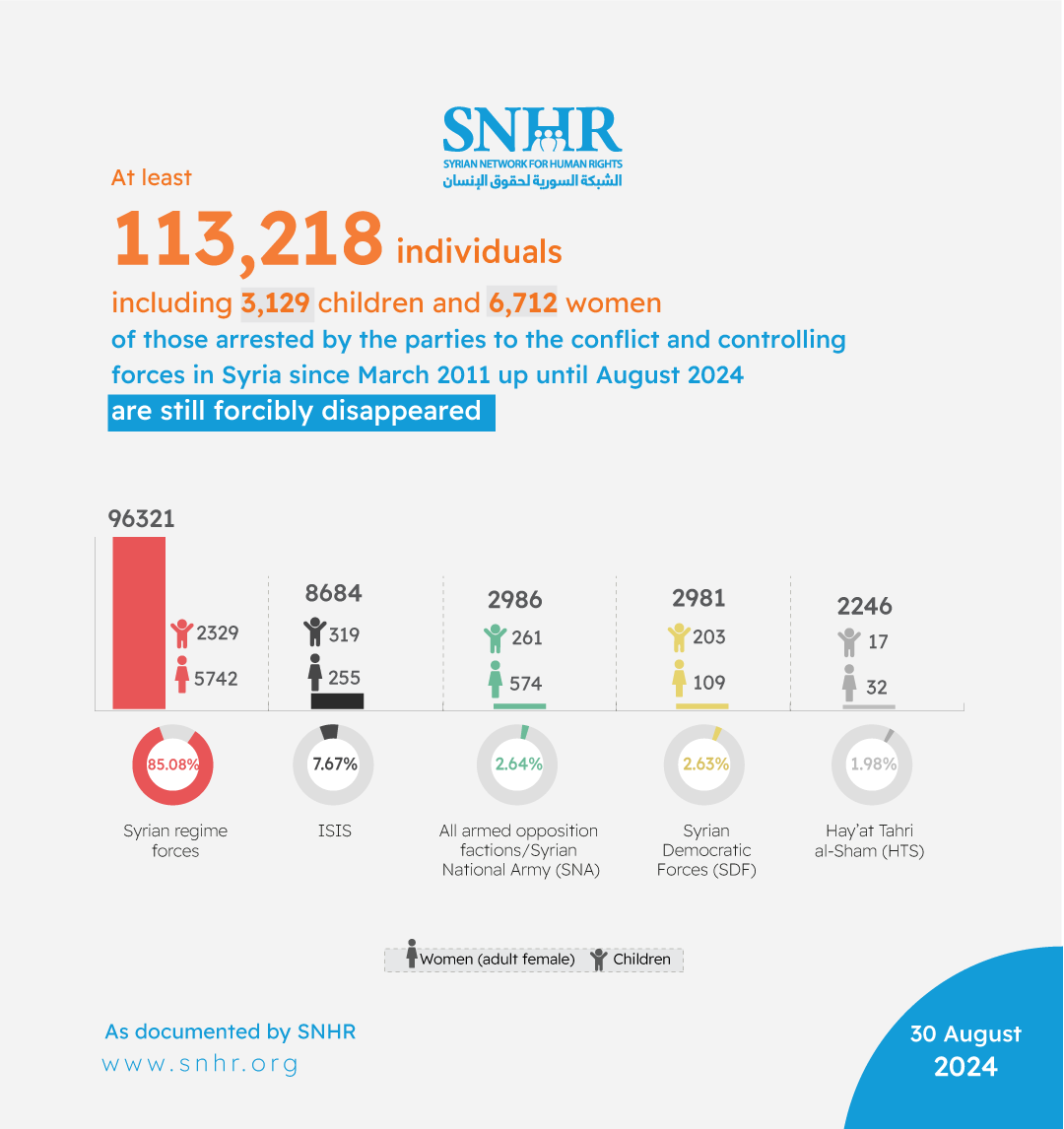
Figure 1: Breakdown of documented enforced disappearances in Syria by perpetrator as of August 2024.
Source: Syrian Network for Human Rights (SNHR)
Institutionalized Terrorism and Mechanisms of Disappearance in Syria
Under Assad’s rule, enforced disappearance has been a deliberate and institutionalized policy explicitly designed to suppress dissent, spread terror, and enforce absolute state control. From the early days of the 2011 protests, the regime’s security services targeted protesters, activists, bloggers, and anyone deemed disloyal. The regime expanded its operations, systematically targeting youth, doctors providing medical care in opposition-held areas, and relatives of activists or defectors as punitive and deterrent measures.
The regime’s four main security services, Military Security, Air Force Intelligence, General Intelligence, and Political Security, operated a vast network of official and secret detention centers. Cellars, military airfields, abandoned schools, and farms were turned into sites of horrific abuse. One of the most prominent features of this system was the deliberate concealment of the identities and whereabouts of detainees. Upon arrest, individuals were completely deprived of legal protection, with authorities systematically failing to document their personal data, rendering families’ efforts to search for their loved ones futile. When families dared to inquire, they faced outright denial or, worse, arrest, further exacerbating the prevailing climate of fear. The regime’s model of elaborate terrorism later served as a template for other armed factions during the conflict, which similarly used enforced disappearances to eliminate their rivals and control the population.
Families in Limbo, Psychological Suffering and Financial Exploitation
The impact of enforced disappearance goes far beyond individual victims. The families left behind suffer ongoing psychological suffering, an ordeal that constitutes a gross violation of human rights. A hallmark of their pain is the uncertainty deliberately practiced by perpetrators, leaving families caught between grief and fragile hope. As the mother of a young man from Idlib recounted: “I later learned that Ahmad was seen in December 2012 at the Syrian regime’s State Security branch in Idlib, and that was the last I heard of my son.” Their plight is compounded by exploitation and extortion. Desperate for information, families were often forced into financial ruin, selling their homes, land, and property to pay exorbitant sums to corrupt intermediaries, such as lawyers, officials, or fraudsters who falsely claimed connections to the detainees. These intermediaries often provided false information, compounding the psychological and financial devastation. A relative of two disappeared brothers from Aleppo recounted their experience: “We paid huge sums of money, up to 12,000 dollars, to find out anything about them, but to no avail. We were simply exploited.”
Being a doctor who documents violations and listens to the testimonies of detention survivors, while at the same time having a dear brother in detention, is a deep psychological pain that leaves deep scars in memory and feelings. How can you tell your mother, who is waiting for your brother’s release, that his chances of survival are slim when you know the meaning of hunger and severe torture in prisons that lack the most basic elements of life?
The Assad regime has reinforced this cruelty through its civil registries. Starting in 2018, thousands of disappeared people were registered as dead without notifying their families or returning their remains, leaving many relatives to discover the fate of their loved ones by chance.
Echoes from Sednaya: Torture, Execution, and Survival
Sednaya military prison epitomizes the extreme brutality of the Assad regime, described by Amnesty International as a “human slaughterhouse”. Between 2011 and 2015, nearly 13,000 detainees were secretly executed by hanging, often in mass executions carried out at night, involving twenty to fifty prisoners at a time.
Enforced disappearances have often led to even more horrific crimes, notably systematic torture and extrajudicial executions. Sednaya military prison epitomizes the extreme brutality of the Assad regime, described by Amnesty International as a “human slaughterhouse” (2017).[2] Between 2011 and 2015, nearly 13,000 detainees were secretly executed by hanging, often in mass executions carried out at night, involving twenty to fifty prisoners at a time. The US State Department reported in 2017 that the regime established a crematorium at Sednaya to dispose of bodies, erasing any evidence of mass atrocities.[3]
Survivor testimonies, including those I documented myself through my medical work with refugees, detail the horrific, almost unbelievable conditions prisoners endured. Torture was systematic and routine. Detainees faced starvation and deliberate deprivation of water, forcing some to drink their own urine to survive. Medical neglect became another tool of cruelty, exacerbating untreated injuries and illnesses to death. The stories of survivors are not just narratives of individual resilience; they are essential evidence of crimes against humanity. As one survivor described the conditions in Sednaya, the details of the abuses are so brutal that it is difficult to comprehend how anyone could come out alive.
Consequences and Accountability, Challenges Beyond 2024
The fall of the Assad regime and the liberation of prisons like Sednaya in December 2024 represent a historic opportunity for truth, justice, and accountability. The immediate priority now is to secure and analyze records from liberated security headquarters and begin the hard work of identifying victims and locating mass graves. This monumental task is further complicated by the regime’s deliberate policy of not registering detainees, underscoring the importance of physical and forensic evidence.
The international community, previously hampered by political divisions, is renewing its commitments. The establishment of the UN Independent Commission on Missing Persons in Syria in June 2023 is an important step forward. Although it lacks prosecutorial authority, its role in compiling a centralized database and providing a safe avenue for families to report cases is invaluable. However, significant challenges remain. True reconciliation in Syria is not possible without justice, necessitating a multi-pronged approach. This approach includes supporting initiatives led by Syrian families and survivors, such as the Families for Freedom Coalition, empowering local efforts to document crimes, and actively pursuing legal accountability for all perpetrators. It is essential that justice comprehensively address crimes committed not only by the former regime, but by all parties that used enforced disappearance as a tactic of war. The crime does not expire. Ultimately, the search for the missing in Syria is not just about finding answers for more than 112,000 people; it is fundamentally about restoring the rule of law, preserving collective memory, and reclaiming the spirit of a new Syria.
[1] See. https://snhr.org/blog/2023/08/30/snhrs-12th-annual-report-on-enforced-disappearance-in-syria-on-the-international-day-of-the-disappeared-enforced-disappearance-is-an-ongoing-crime-in-syria/
[2] See. https://www.amnesty.org/en/documents/mde24/5415/2017/en/
[3] See. https://it.usembassy.gov/briefing-on-syria/








